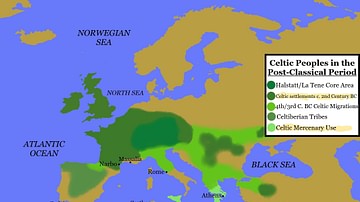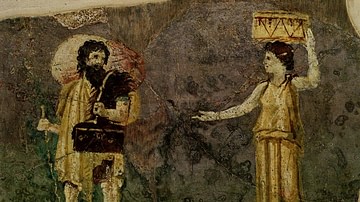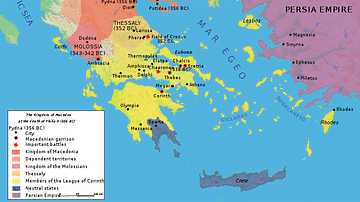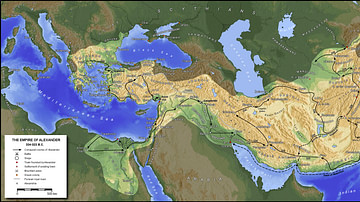Search
Search Results

Definition
Masada
Masada (“fortress” in Hebrew) is a mountain complex in Israel in the Judean desert that overlooks the Dead Sea. It is famous for the last stand of the Zealots (and Sicarii) in the Jewish Revolt against Rome (66-73 CE). Masada is a UNESCO...

Definition
Roxanne
After Alexander the Great's victory over King Darius III at the Battle of Gaugamela in 331 BCE, he had to contend with small rebellions that broke out across his empire. In the summer of 328 BCE, one such rebellion occurred in the eastern...

Definition
Hipparchia of Maroneia
Hipparchia of Maroneia (l. c. 350-280 BCE) was a Cynic philosopher who rejected her upper-class life to live her beliefs and share her values on the streets of ancient Athens. She was the wife of the Cynic Crates of Thebes (l. c. 360-280...

Definition
Isocrates
Isocrates (436-338 BCE) was an ancient Athenian rhetorician, characterized as one of the most prominent orators of his time, even though it appears that he restricted himself to writing speeches and not orating them himself. His most notable...

Article
The Celtic Invasion of Greece
Between the 5th and 4th centuries BCE, Celtic tribes moved en masse into southern Europe, intent on seizing land and wealth to feed their swelling numbers. As these tribes began crossing the Alps, they came into conflict with the Romans and...

Article
Philo of Byzantium's On the Seven Wonders
Philo of Byzantium's On the Seven Wonders (225 BCE) is the first known list of the Seven Wonders of the Ancient World (though it may have been based on earlier works now lost). Philo's list differs from the standard Seven Wonders in replacing...

Article
Pausanius' Guide To Ancient Athens
Pausanius (l. 110-180 CE) was a geographer and historian who traveled extensively, taking notes on points of interest, then wrote on them in guide books which could be used by tourists visiting the sites described. His works have long been...

Article
Hipparchia the Cynic: Devoted Wife, Mother, & Outspoken Greek Philosopher
Cynic philosopher, wife of Crates of Thebes (l. c. 360 – 280 BCE), and mother of his children, Hipparchia of Maroneia (l. c. 350 – 280 BCE) defied social norms in order to live her beliefs. She is all the more impressive in that she taught...

Article
The Hypaspists in Ancient Sources
Hypaspist translitterates the Greek term meaning shield-bearer, or armour-bearer (ὁ ὑπασπιστής). This noun is formed from the verb ὑπασπίζειν - to carry the shield for another; serve as a shieldbearer. The Shieldbearers of the Argead kings...

Image
The Empire of Alexander the Great
A map showing the Empire of Alexander the Great, his conquests, and the routes he took (334 BC - 323 BC). Major cities, roads, and battles are indicated.